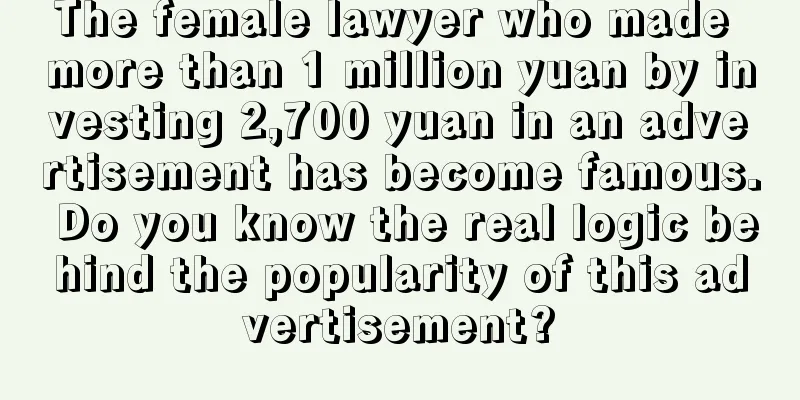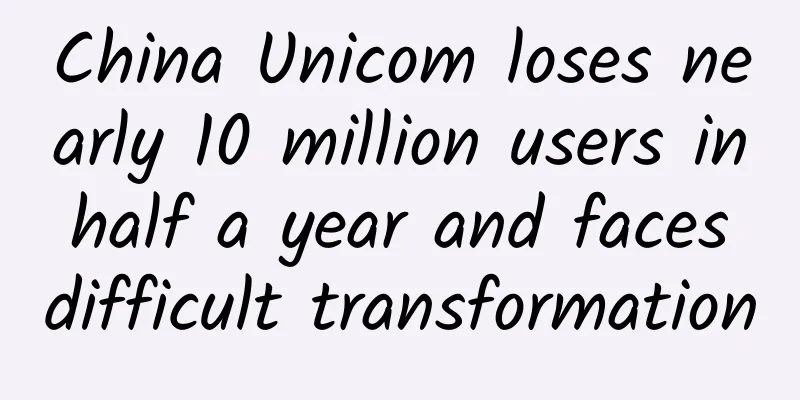Google and Apple's strategic race: updating the system to "manage everything"

|
In the early morning of June 26, Google held its annual Google I/O conference in San Francisco . This time, Google released systems and updates for mobile phones, wearable devices, living room TVs, car systems, and health management platforms at once. It seems that Google is going to dominate everything with Android. A Chinese developer who attended the conference told the reporter that his biggest feeling was that the core purpose of Google's release this time was to create a unified and efficient user experience by connecting different platforms. "For example, in the future, the location and navigation information set in the mobile phone can be used directly in the car equipment. The watch can control the mobile phone, and the mobile phone can control the TV." Compared with Apple 's WWDC conference less than a month ago, the two technology giants have overlapping layouts in many of the above-mentioned fields. For example, Apple also emphasized the collaboration between different devices and released the in-car platform Carplay, the health platform Healthkit, and the Homekit for managing the living room. Zhang Yi, CEO of iMedia Consulting, believes that the future competition between Google and Apple is expected to be more comprehensive and direct, which is a good thing for various domestic hardware manufacturers. Because Google and Apple have different ideas, Apple integrates hardware and software, while Google does not make hardware. The faster Google follows up at the system level, the more advantageous it will be for hardware manufacturers using the Android system to compete with Apple. In fact, domestic hardware manufacturers have long been rushing into the markets of smart TVs, smart watches, car systems, and health wearable devices. However, since most of the experiences are unsatisfactory, it is difficult to ignite the market. The efforts of Google and Apple will accelerate the maturity of these markets. Expansion beyond Apple? "It is now clear that the two giants, Apple and Google, have started to compete for markets beyond mobile phones," Zhang Yi believes. Apple, with iOS as its core, hopes to unify the experience in different scenarios such as cars, smart homes, and wearable devices. Judging from the ambitions revealed by Google this time, it is also doing the same thing, but more thoroughly. The free and open strategy of the Android system has actually allowed it to penetrate into various fields beyond mobile phones. Many manufacturers have invested their own resources to develop Android TVs, Android watches and even health and medical equipment. However, most of them just slightly modified the Android system for mobile phones and used it on other devices, resulting in uneven experiences and causing "fragmentation" problems for Google. This time, Google officially released Android Wear for watches, Android Auto for cars, Android TV for TVs, and Google Fit for health management, which actually means shrinking the fruits. After third-party manufacturers tested the waters, Google began to "take back power" and hoped to create a unified interface and experience. Zhang Yi believes that in the competition between Apple and Google's ecosystems outside of smartphones, he is more optimistic about Google because Android is a free and open system with a wider coverage than Apple. This can also be seen from the development history of smartphones. After Apple's iPhone overturned the smartphone market, Android came from behind with its free service. According to IDC data, Android smartphones currently have a global market share of 78.1%, while Apple's iOS has a share of 17.6%. Therefore, similar development trajectories may also appear in other fields such as automotive, smart home, wearable devices, etc. Apple ignited the market and set a benchmark, and then the free Android quickly occupied the market. Opportunities for hardware vendors In Shenzhen, after switching to the netbook and box markets, copycat phone manufacturers are now flocking to wearable devices. Take wristbands as an example. Many wristbands priced at hundreds of yuan have appeared on the market. However, due to the poor experience, not many people use them. Zhang Yi even believes that the wearable products on the market today, whether from well-known manufacturers such as Samsung and Sony or other domestic manufacturers, are not really "smart products". He believes that the current wearable products are like the "Symbian or BlackBerry" in the early years. Although they are all called smartphones, they are fundamentally different from the iPhone that came later. "Whether it's wearables, home appliances, or cars, these fields are generally very immature. Manufacturers that have already released products are actually having a hard time," Zhang Yi said. Taking some manufacturers in Shenzhen as an example, you will find that the more they produce, the more backlogs they have. The reason is that the products are not smart enough and are not what users need. Therefore, Apple's entry into the competition is actually a good thing for other hardware manufacturers. Because no one knows how to do it, just like the smartphones that everyone understood in the Symbian era, which may not be the products that users really need. Until the iPhone came out, it told everyone that mobile phones can actually do this. Zhang Yi believes that similar situations may occur in other fields such as wearables in the future. After Apple or a certain manufacturer sets a benchmark, coupled with the support of Google's free system, it can quickly promote the maturity of the ecosystem. Google has released Android Wear for watches, Android Auto for cars, Android TV for TVs, and Google Fit for health management, putting most manufacturers on the same starting line. It is expected that various smart devices using the Android system will explode in the second half of the year. (Edited by Lu Aifang and Xin Yuanwei) Google's "One Ring" By Liu Yi On June 26, 2014, at Moscone West in San Francisco, Google's annual I/O conference became a huge strategic declaration: Google will build a ubiquitous information system. The entry-level mobile phone platform Android One, the wearable device Android Wear, the smart car platform Android Auto, the TV system Android TV, the Chromecast TV stick, the Chromebook that integrates the mobile phone and PC... Android has invaded one billion devices around the world, and it is further rapidly expanding its territory, and its momentum to swallow up the world is growing. 19 "Lord of the Rings" Readers familiar with the great science fiction work "The Lord of the Rings" will certainly not forget "Sauron". As a top wizard, he possesses extraordinary craftsmanship and is widely respected. Both the white-robed wizard Saruman and the grey-robed wizard Gandalf are far inferior to him in status. In the history of IT evolution, IBM, Microsoft and Apple were once the "Saurons" of an era, possessing the most sophisticated skills and the magic to control the market. However, as generations passed, they did not completely invade everyone's life in a certain era, and their power had not yet reached its peak to some extent. In today's new era, Google has become the strongest generation of "Sauron". It not only has the magical skill of search engine, but also becomes the world's largest Internet company. Among the top 20 Internet companies in the world, the total profits of the last 19 Internet companies including Facebook, Amazon, Alibaba, Tencent, Baidu, eBay, PriceLine, Yahoo, JD.com, Naver, Twitter, etc. are not as much as that of Google alone. Android Wear, Android Auto, Android TV, Chromebook, Nest... and so on, are just 19 rings created by Sauron and several industry elves, but the one who truly controls the overall situation is Google, and the Android platform is the "Supreme Ring" that it has worked hard to create and control the world. Each of the 19 rings has a unique power, which is enough to tempt Google's partners. Just like the smartphone market, except for Apple, which is like an "elf tribe" and sticks to one side, most other races are flocking to Android. Among these races, except for the "dwarf tribe" like Samsung, which has alchemy such as NAND, LED and chips, other manufacturers are almost all losing money. In other words, free Android is sweet, but it may be a poison that many manufacturers are willing to drink. The reason is that Google controls the most powerful supreme ring - Android. However, if they do not follow Sauron, most manufacturers will struggle with Nokia and confront Microsoft in the last technological era... It's just that the companies in the last era do not have as strong control as Sauron in this era. As Android penetrates into 5 billion mobile phones, 1 billion cars, and countless wearable devices around the world, its ecosystem has become more difficult to subvert - just like IBM and Microsoft in the past. However, behind the 10 billion connections is a more powerful force that can peek into almost all of everyone's data and record almost all of everyone's digital footprints. Although Google is more "invisible" than IBM and Microsoft, the most powerful Sauron is just an invisible "necromancer" hiding in the Eye of Sauron in Mordor. The power of checks and balances Of course, Google has not yet become a complete monopoly, because it still holds high the banner of openness. Just like Sauron, when the great devil "Morgoth" was driven out of the Central Plains, it became difficult to control because of its greed for money and power. Microsoft was once accused of being "Morgoth". It is being driven to the edge in the fields of smart devices and the Internet, but it still has a place in the PC market and has some checks and balances. The profit-seeking nature of enterprises and the bloodthirsty nature of capital determine that it is inevitable to occupy a larger market share and obtain greater profits. Google has already shown its greed in some areas: For example, this time it launched Android One, and introduced three Indian manufacturers, Micromax, Karbon and Spice. Many people may not know that in the Indian smartphone market, in addition to Samsung, the once-popular Chinese copycats, ZTE and Huawei have long been swept out, and Micromax and Karbon are in the top three. Why is this happening? Because Android has become so easy to develop, companies are ultimately competing on cost and marketing, and Chinese manufacturers' marketing capabilities in India are far inferior to those of local manufacturers. Android is such a game: it seems that everyone can succeed through it, and everyone has mastered the power of the Lord of the Rings, but the Lord of the Rings is the magician behind everything. Xiaomi's success is attributed to marketing and MIUI, and OPPO's success is attributed to channel control and industrial design... However, you can never tell when Android will block the road to custom ROMs, nor when Android will expand Nexus and use its own design to squeeze out the space of partners - it's just that the previous attempts were unsuccessful. It's not just Google. Didn't Microsoft also launch its own tablet? Its failure is lucky for downstream manufacturers. If it succeeds, it will be the end of downstream manufacturers! If you are in the downstream, the luckiest thing is to hope for its demise. Weird. The world needs checks and balances. Apple, Microsoft, and Google currently have a balance of power. However, we don’t know whether Microsoft, the former giant, can fight back. We also don’t know whether Apple, an elf living in the forest, can always stay out of it and not try to engage in all-out confrontation... No one knows for sure. A few days ago, China launched a policy to vigorously support local integrated circuit manufacturers - that is also extremely difficult, but at least the mainland still has Spreadtrum and HiSilicon, and Taiwan still has MTK to compete with Qualcomm, and there will be a group of followers such as Unigroup, RDA, and ZTE Micro. However, at the software level, at the core point of OS, who can we expect? It's like you don't have a ship in the Age of Discovery, and you don't have electricity in the steam engine era... Who is the Frodo of China, or even Europe, Japan and South Korea? As a winner of Toutiao's Qingyun Plan and Baijiahao's Bai+ Plan, the 2019 Baidu Digital Author of the Year, the Baijiahao's Most Popular Author in the Technology Field, the 2019 Sogou Technology and Culture Author, and the 2021 Baijiahao Quarterly Influential Creator, he has won many awards, including the 2013 Sohu Best Industry Media Person, the 2015 China New Media Entrepreneurship Competition Beijing Third Place, the 2015 Guangmang Experience Award, the 2015 China New Media Entrepreneurship Competition Finals Third Place, and the 2018 Baidu Dynamic Annual Powerful Celebrity. |
<<: The reason behind advertisers' big investments in long videos: user addiction
>>: Behind Tencent's $736 million investment in 58.com
Recommend
The magic of clay! A new breakthrough in the method of stopping bleeding
Produced by: Science Popularization China Author:...
Will infertility be listed as one of the three major diseases of mankind in the 21st century? Obesity is the direct cause?
Expert in this article: Wang Yi, attending physic...
These 5 conditions in the mouth may be a warning sign of cancer! One is very common and should not be ignored.
Oral cancer is one of the 10 most common cancers ...
Orange high temperature warning! 10 provinces and cities will experience high temperatures, please take precautions!
The Central Meteorological Observatory continued ...
Explore exciting entertainment, Huawei VR Glass glasses bring you real fun experience!
As people's lifestyles change, more and more ...
National Love Teeth Day丨How far are we from dental implant freedom?
Jointly produced by: Sina News Photo and Data Roo...
China Passenger Car Association: In-depth analysis report on the national passenger car market in October 2022
This article is an authoritative in-depth market ...
With both land and sea, why did the ancient West choose maritime civilization while China chose agricultural civilization?
We know that the source of Western civilization i...
The product logic behind the epidemic topics of Toutiao, WeChat, and Alipay
In January 2020, at the beginning of the Chinese ...
PS4 "Gravity Rush: Remastered" review: conscientious remake of the controller function further demonstrated
After Tearaway: Unsealed was launched in China, t...
Why do users uninstall apps?
[[158313]] This article is from a high-quality an...
The secret of increasing followers: operators must learn to cooperate
There are many miscellaneous tasks in operations ...
What should I do if my family or colleague is infected with the new coronavirus?
In recent days Multiple sporadic cases have occur...
How can offline education and training personal accounts build a WeChat private domain pool?
In the past two years, private domain traffic has...
Why do rockets go in circles when launching satellites instead of going straight to the target? Is it because of insufficient thrust?
Everyone who has attended junior high school know...









